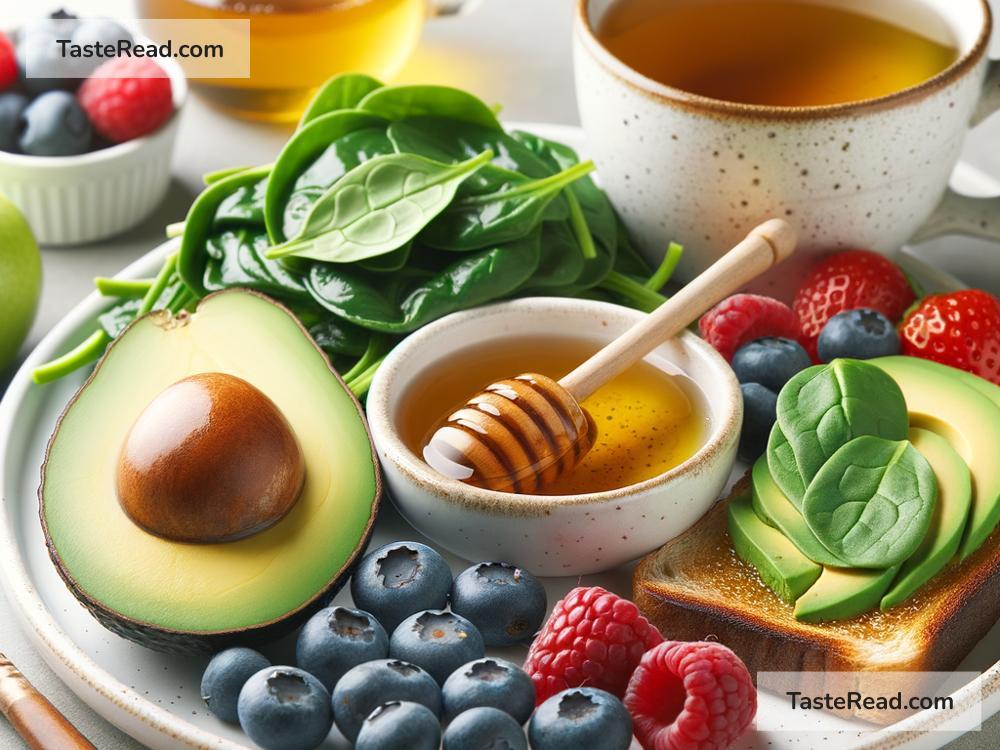Foods That Support Vocal Cord Health
If you’ve ever had a sore throat or lost your voice, you know how frustrating it can be. Whether you’re a professional singer, a teacher, or someone who just enjoys chatting with friends, keeping your vocal cords healthy is important. Your vocal cords are like the strings of a musical instrument—they vibrate to create sound when you speak or sing. Taking care of them is essential for maintaining a strong, clear voice.
The good news is that your diet can help keep your vocal cords in top shape! Certain foods and drinks can soothe your throat, reduce inflammation, and support overall health for your entire voice box. Let’s take a closer look at some of the best foods to include in your diet if you want to keep your vocal cords healthy.
1. Water: The Best Beverage for Your Voice
Hydration is the key to healthy vocal cords. When your vocal cords are well-lubricated, they can vibrate more easily to produce sound. Drinking lots of water ensures that the protective mucus layer on your vocal cords stays moist and flexible.
Make it a habit to sip on water throughout the day, especially if you use your voice a lot for work or hobbies. Aim for 6–8 glasses of water daily. If plain water feels boring, try herbal teas (more on those later).
2. Honey: Nature’s Soothing Elixir
Honey is famous for its soothing properties. If your throat feels irritated or dry, a spoonful of honey can make a big difference. Honey helps coat your vocal cords with its smooth texture, reducing inflammation and discomfort.
You can also mix honey into warm tea or hot water with lemon for an extra soothing drink. It’s a great go-to remedy for singers before performances or anyone who needs quick relief for their voice.
3. Ginger: A Natural Anti-Inflammatory
Ginger is another food that works wonders for your throat and vocal cords. This spicy root has natural anti-inflammatory properties that can help reduce swelling in your vocal cords if they’re overused or strained. Ginger also helps clear up mucus that can clog your throat and affect your voice.
Try adding fresh ginger to a cup of warm tea or boiling it with water to make a homemade ginger drink. You can even chew on candy made with real ginger for quick relief.
4. Leafy Greens: Packed with Nutrients
Dark leafy greens like spinach, kale, and Swiss chard are loaded with vitamins and minerals, especially vitamin A. This vitamin is known to keep the mucous membranes in your throat and vocal cords healthy.
Greens also contain antioxidants, which help protect your vocal cords from damage caused by inflammation. Include leafy greens in salads, smoothies, soups, or stir-fry dishes to support your overall voice health.
5. Whole Grains: Energy for Vocal Stamina
Whole grains like oatmeal, brown rice, and quinoa provide long-lasting energy. As a vocal performer or someone who uses their voice for hours, you’ll need stamina, and whole grains are perfect for keeping your energy levels steady.
Additionally, whole grains contain important nutrients like zinc and magnesium that support throat tissue health and may even boost your immunity. Start your morning with a bowl of oatmeal or add brown rice to your lunch or dinner plate.
6. Fruits: Hydration and Vitamins
Fresh fruits, especially water-rich ones like apples, pears, watermelon, oranges, and cucumbers, are excellent for vocal cord health. These fruits hydrate your vocal cords while providing essential vitamins like vitamin C and antioxidants that reduce inflammation.
Bananas are another great fruit for the voice—they’re soft, easy to swallow, and packed with magnesium, which can relax muscles and ease tension in your throat.
7. Herbal Teas: Calm and Restore Your Voice
While coffee and caffeinated drinks can dry out your vocal cords, herbal teas are the opposite—they’re soothing and hydrating. Chamomile tea, for example, is great for calming your throat if it feels sore. Licorice root tea is another choice that can help clear mucus buildup.
Just remember to keep your tea warm, not scalding hot! High temperatures can irritate your vocal cords, which defeats the purpose of drinking a soothing brew.
8. Chicken or Vegetable Broth: A Warm, Comforting Option
A bowl of warm chicken or vegetable broth can do wonders for your throat. Broth hydrates your vocal cords while the steam soothes irritation. Be sure to choose low-sodium options, as too much salt can dry out your mouth and throat.
Feel free to add garlic and onion to the broth for extra vocal cord benefits—both contain allicin, a compound known for its anti-inflammatory properties.
9. Avocado: A Healthy Fat for Vocal Flexibility
Avocado is a smooth, creamy fruit rich in healthy fats, which help maintain the flexibility of your vocal cords. These fats can also reduce irritation caused by overuse. Add avocado slices to your toast, blend them into a smoothie, or whip up a batch of guacamole.
Foods to Avoid:
While certain foods benefit your vocal cords, it’s also important to avoid foods that may harm them. For example, fried foods, spicy dishes, and dairy can create mucus buildup or irritate your throat. Additionally, alcohol and caffeine can dry out your vocal cords, making it harder to speak or sing comfortably.
Final Thoughts:
Your vocal cords are an essential tool for speaking, singing, and connecting with others. By eating the right foods and staying hydrated, you can protect them and keep your voice in top shape. Water, honey, ginger, fruits, vegetables, and herbal teas are all great choices for supporting vocal cord health. Pair them with proper voice care—like warming up before singing or resting when your voice feels strained—and you’ll have a strong, healthy voice at all times. So the next time you’re whipping up a meal or snack, think about how it can nourish and protect your vocal cords!


